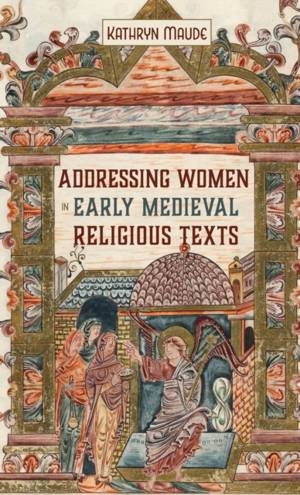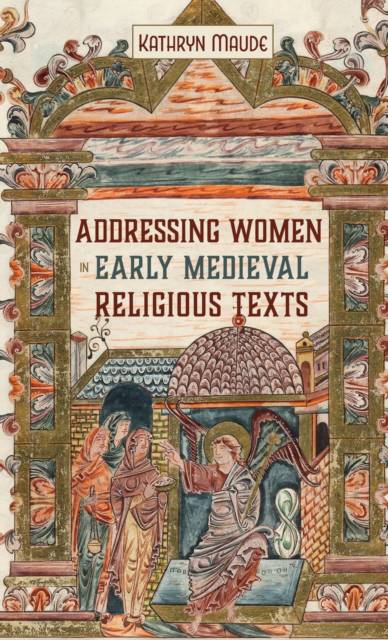
Bedankt voor het vertrouwen het afgelopen jaar! Om jou te bedanken bieden we GRATIS verzending (in België) aan op alles gedurende de hele maand januari.
- Afhalen na 1 uur in een winkel met voorraad
- In januari gratis thuislevering in België
- Ruim aanbod met 7 miljoen producten
Bedankt voor het vertrouwen het afgelopen jaar! Om jou te bedanken bieden we GRATIS verzending (in België) aan op alles gedurende de hele maand januari.
- Afhalen na 1 uur in een winkel met voorraad
- In januari gratis thuislevering in België
- Ruim aanbod met 7 miljoen producten
Zoeken
Omschrijving
From the tenth to the twelfth centuries in England and Scotland we have scant evidence of women's writing. How, then, can we access these women's experiences?
This book argues that by analysing texts deliberately written forand addressed directly to women we gain an insight into the horizons of possibility for their lives. It examines religious texts addressed to women, bringing together works that are more widely studied with others that are less well known, and demonstrates continuities across Old English and Latin texts written for female readers and patrons across the Conquest period. Case studies, ranging from Ælfric's sermons to Aelred's De institutione inclusarum, from the Life of Christina of Markyate to Goscelin's saints' lives for Wilton and Barking Abbeys, attend to the intimate scripts women were encouraged to inhabit through a close focus on the form of the textual address.By concentrating on address, the book illuminates how women were encouraged to live, and by following women's commissioning and copying of texts, it demonstrates which of these textual addresses women valued and attempted to follow.
KATHRYN MAUDE is Assistant Professor of Women and Gender Studies at the American University of Beirut.
This book argues that by analysing texts deliberately written forand addressed directly to women we gain an insight into the horizons of possibility for their lives. It examines religious texts addressed to women, bringing together works that are more widely studied with others that are less well known, and demonstrates continuities across Old English and Latin texts written for female readers and patrons across the Conquest period. Case studies, ranging from Ælfric's sermons to Aelred's De institutione inclusarum, from the Life of Christina of Markyate to Goscelin's saints' lives for Wilton and Barking Abbeys, attend to the intimate scripts women were encouraged to inhabit through a close focus on the form of the textual address.By concentrating on address, the book illuminates how women were encouraged to live, and by following women's commissioning and copying of texts, it demonstrates which of these textual addresses women valued and attempted to follow.
KATHRYN MAUDE is Assistant Professor of Women and Gender Studies at the American University of Beirut.
Specificaties
Betrokkenen
- Auteur(s):
- Uitgeverij:
Inhoud
- Aantal bladzijden:
- 174
- Taal:
- Engels
- Reeks:
- Reeksnummer:
- nr. 18
Eigenschappen
- Productcode (EAN):
- 9781843845966
- Verschijningsdatum:
- 18/06/2021
- Uitvoering:
- Hardcover
- Formaat:
- Genaaid
- Afmetingen:
- 140 mm x 216 mm
- Gewicht:
- 408 g

Alleen bij Standaard Boekhandel
+ 306 punten op je klantenkaart van Standaard Boekhandel
Beoordelingen
We publiceren alleen reviews die voldoen aan de voorwaarden voor reviews. Bekijk onze voorwaarden voor reviews.









